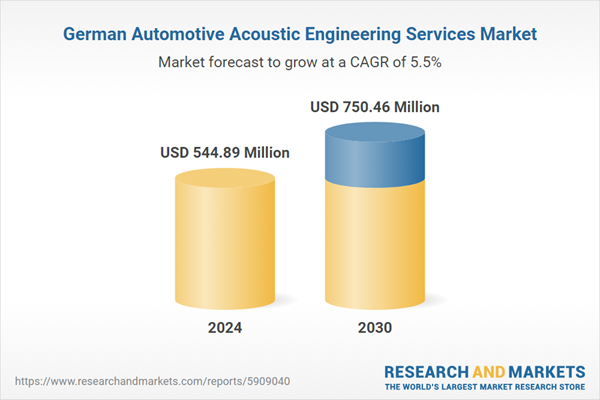Speak directly to the analyst to clarify any post sales queries you may have.
10% Free customizationThis report comes with 10% free customization, enabling you to add data that meets your specific business needs.
Market Drivers
Electrification of Powertrains Accelerating Acoustic Demands
The transition from internal combustion engines to electric powertrains is creating a transformative shift in acoustic engineering priorities. Traditional engine sounds that previously masked other vehicle noises are being eliminated, exposing sources like tire-road interaction, aerodynamic turbulence, HVAC systems, and electronic component vibrations. This acoustic vacuum necessitates the implementation of advanced noise control strategies to maintain cabin comfort and meet customer expectations. OEMs and Tier-1 suppliers are investing in simulation-based design tools and novel materials to address these emerging noise sources.The growing reliance on electric and hybrid vehicles has expanded the scope of acoustic engineering from passive to active systems, such as sound masking and active noise cancellation, making it a central focus in vehicle development cycles. This shift is not limited to premium vehicles but is influencing mass-market segments as well. For instance, Germany’s EV market surged in early 2025, with battery electric vehicle (BEV) registrations rising 43% to 158,503 units in just four months already over 60% of 2024’s full-year total. BEVs now command a 17.5% share of total car sales, underscoring Germany’s pivotal role in Europe’s electrification.
Key Market Challenges
High Cost of Advanced Acoustic Engineering Tools
Deploying sophisticated acoustic engineering solutions often requires substantial financial investment in simulation software, anechoic chambers, sensor systems, and high-fidelity modeling platforms. For many OEMs and smaller suppliers, the capital expenditure needed to build and maintain such infrastructure can be prohibitively expensive. These tools are essential for conducting detailed frequency analysis, psychoacoustic modeling, and 3D spatial simulations, all of which are necessary to meet evolving vehicle design requirements. While the ROI of these tools is significant over the long term, the initial cost often limits accessibility, particularly for low-volume or niche vehicle programs. This cost barrier slows the democratization of advanced acoustic services across the broader automotive industry.Key Market Trends
Adoption of Virtual Acoustic Testing Platforms
Virtual testing environments are becoming a core component of acoustic engineering, enabling manufacturers to evaluate NVH characteristics digitally before physical prototypes are built. These platforms offer high-speed simulation of structural-borne and airborne noise across various operating scenarios, significantly reducing development cycles and testing costs. Digital acoustic twins replicate full-vehicle acoustics and allow for iterative tuning of design parameters such as panel stiffness, joint integrity, and insulation layout.They support modular integration, which is especially valuable in flexible vehicle architectures shared across multiple models. Engineers are increasingly relying on AI-enhanced platforms to process complex datasets and identify optimal NVH configurations faster than traditional methods. Virtual acoustic testing also allows for easy validation of component-level sound performance, helping isolate problem areas early in the development process. By providing real-time insight and scenario planning, these tools reduce late-stage surprises and support concurrent engineering workflows.
Key Market Players
- Siemens Digital Industries Software (Siemens AG)
- Robert Bosch GmbH
- Continental Engineering Services GmbH (Continental AG)
- Bertrandt AG
- Schaeffler Engineering GmbH
- Autoneum Holding Ltd
- IAC Acoustics (Catalyst Acoustics Group)
- AVL List GmbH
- EDAG Engineering Group AG
- FEV Group GmbH
Report Scope:
In this report, the Germany Automotive Acoustic Engineering Services Market has been segmented into the following categories, in addition to the industry trends which have also been detailed below:Germany Automotive Acoustic Engineering Services Market, By Vehicle Type:
- Passenger Car
- Commercial Vehicle
Germany Automotive Acoustic Engineering Services Market, By Process:
- Designing
- Development
- Testing
Germany Automotive Acoustic Engineering Services Market, By Software:
- Calibration
- Vibration
- Others
Germany Automotive Acoustic Engineering Services Market, By Application:
- Interior
- Body and Structure
- Powertrain
- Others
Germany Automotive Acoustic Engineering Services Market, By Region:
- South-West
- South-East
- North-West
- North-East
Competitive Landscape
Company Profiles: Detailed analysis of the major companies present in the Germany Automotive Acoustic Engineering Services Market.Available Customizations:
With the given market data, the publisher offers customizations according to the company’s specific needs. The following customization options are available for the report.Company Information
- Detailed analysis and profiling of additional market players (up to five).
This product will be delivered within 1-3 business days.
Table of Contents
Companies Mentioned
The leading companies profiled in this Germany Automotive Acoustic Engineering Services market report include:- Siemens Digital Industries Software (Siemens AG)
- Robert Bosch GmbH
- Continental Engineering Services GmbH (Continental AG)
- Bertrandt AG
- Schaeffler Engineering GmbH
- Autoneum Holding Ltd
- IAC Acoustics (Catalyst Acoustics Group)
- AVL List GmbH
- EDAG Engineering Group AG
- FEV Group GmbH
Table Information
| Report Attribute | Details |
|---|---|
| No. of Pages | 85 |
| Published | September 2025 |
| Forecast Period | 2024 - 2030 |
| Estimated Market Value ( USD | $ 544.89 Million |
| Forecasted Market Value ( USD | $ 750.46 Million |
| Compound Annual Growth Rate | 5.4% |
| Regions Covered | Germany |
| No. of Companies Mentioned | 10 |









